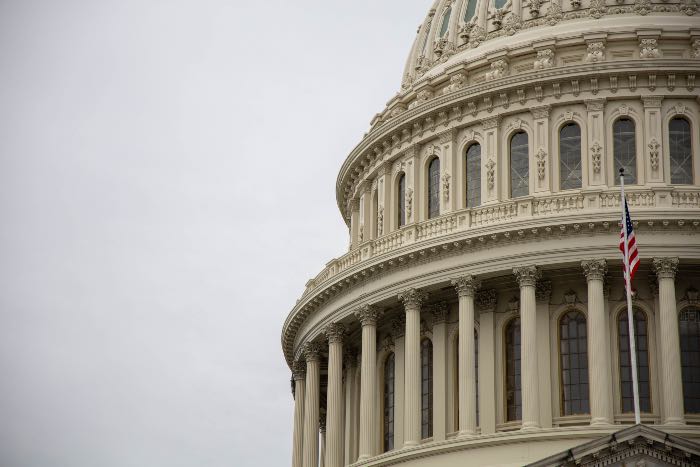
When a handful of members of his own party successfully ousted then-Speaker Kevin McCarthy, we were subjected to incredible flailing for weeks. The U.S. House of Representatives, and with it, the federal government, was leaderless.
And yet, through all of it, and the countless think pieces, little focus has been on the fact that this isn’t a game; it’s an institution with work required of it. Work that can’t simply not get done.
And this blindness to what the House is supposed to do means that a simple idea seems to have occurred to nobody: Why not go with the guy actually whipping his own group?
Four votes.
That’s all it would have taken from Republicans in the House to end the crisis. Just four people of courage could give the speakership to the Minority Leader and set up a coalition government.
To put it another way, all it would take is four moderates to say no to extremism.
Or four Republicans in swing districts, looking to save their seats.
Or even four opportunists, looking to get some power.
Heck, for most rank-and-file Republicans, it should be far easier to find four who could get deep concessions from Democrats than the twenty playing chicken with their own party.
This should have been the most obvious solution.
But it isn’t taken seriously. Not just in Washington, but in news rooms. And it isn’t just an option, but the most obvious.
When the GOP is struggling to find one person they could all agree to support and the party has twenty members it can’t trust, why is solidarity expected?
Other options should be considered normal regardless. But in an intractable situation, they should become the story.
And yet these options don’t warrant a single column in the New York Times?
CNN took it the other way back when McCarthy was struggling to get elected to the post.
And the Washington Post and LA Times wrote dueling editorials about why the Democrats should or shouldn’t help Republicans elect a speaker. As if it isn’t a single body electing its own leader rather than a high-stakes reality game show.
We’re ignoring our purpose.
And the purpose of the House isn’t to provide a platform for the majority. And, at the same time, it isn’t an altar to centrism. It is for a representative body of elected officials to serve at the pleasure of all citizens and to help order our common life.
This means there are political fights over important issues. And we must have people who are willing to fight for our common values. But our obsession with division as intractable and permanent distorts our very vision of government.
That none of this is offered by anyone as necessary to a well-functioning democracy reveals a lot about the media’s attachment to the political binary. And even more for its persistent belief that the majority has any incentive to moderate at all.
And now that we have a Speaker, it would seem the broader point would be moot. Order is restored.
Except that the GOP rallied around a mastermind of the January 6th plot; which reveals a lot about where the whole party is now.
And further, that the Speaker is already planning brinksmanship and tactical division to force his way is unsurprising. And yet, so is the handwringing and shock from the establishment press. Disappointing? Yes. Surprising? No.
This spectacle is incredibly telling. Not just about the party in power, but about our assumptions. And just how few moderate voices there really are.
And maybe that feeling of being trapped by this—like the House felt trapped—the whole government felt trapped—should be the invitation. An invitation to consider what we’re not saying out loud.
